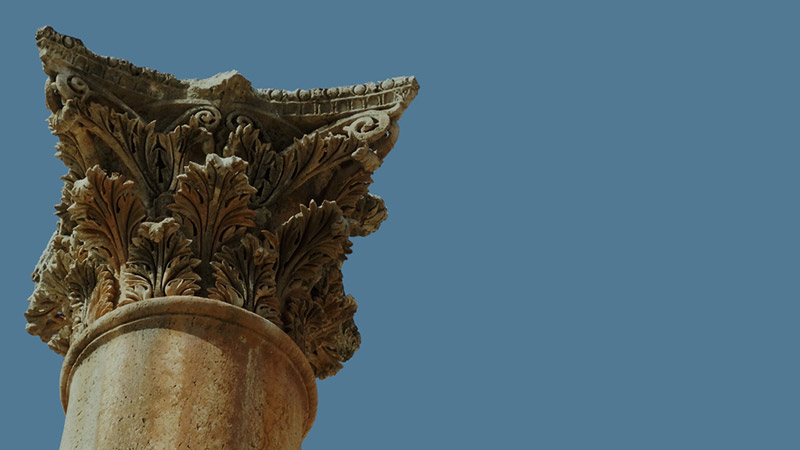Updating...
Showing 10 of 10

THE JOY OF LIVING WATER: JESUS AND THE FEAST OF SUKKOT' With joy you will draw water from the wells of salvation. (Isa. 12:3)Water was of great importance to the people of the Bible. They lived in a dry country, completely dependent on the season...
MORE
MasadaHerod the Great built and impressive fortress at Masada to showcase his own power, but it is remembered today as a symbol of the Jewish desire for freedom.' The mountain of Masada stands tall in Israel's Judea Wilderness. On top of this spe...
MORE
Rabbi and TalmidimThe people of Galilee were the most religious Jews in the world in the time of Jesus. This is quite contrary to the common view that the Galileans were simple, uneducated peasants from an isolated area. This perspective is probab...
MORE
This olive press is in the Capernaum, Jesus' home-base (Matt. 4:13), near the synagogue. The crushed olive pulp was placed in baskets (about four inches thick and two feet in diameter), which were then stacked several high. These baskets are barel...
MORE
Masada is a large rock plateau that creates a desert stronghold in the Judea Wilderness. In Old Testament times, David hid from King Saul in this area. We don't know that David ever stayed in Masada, but David had surely seen or heard of its huge ...
MORE
This photograph shows the southern stairs as viewed from the west, looking onto the stairs and Herod's massive Temple.On the right side of the photo is a straight joint in the wall. This is the beginning of Herod's extension of the Mount to the so...
MORE
Jewish Feasts In the Old Testament, God instituted a religious calendar for the Israelites to follow. Within each year, there were seven specified feasts (Lev. 23), four in the spring and three each fall. Through these feasts, the Jewish people ce...
MORE
City in the central Negev. It was settled before 3000 BC. Abraham and Isaac lived here. Abraham gave it the name Beersheba, which means "well of the oath" or "well of the seven." Often used to refer to the southern end of the P...
MORE
Means "weeks"; also known as Pentecost or the Feast of Weeks. It's celebrated 50 days after the Sabbath following Passover.
MORE